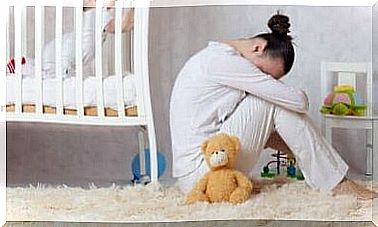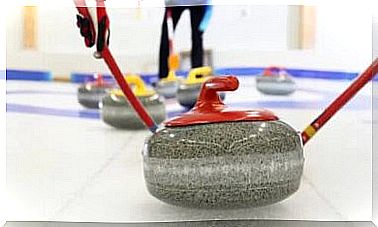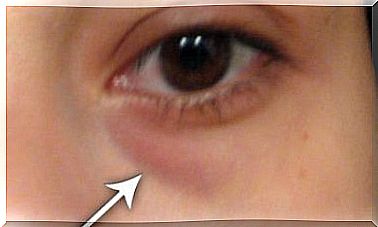Why Physical Contact Is So Important For Your Baby
Physical contact is very important for both the health and wellbeing of your newborn. Babies often cry because they want to go to their mother. And then it’s definitely best to follow your instincts and hug your little one.
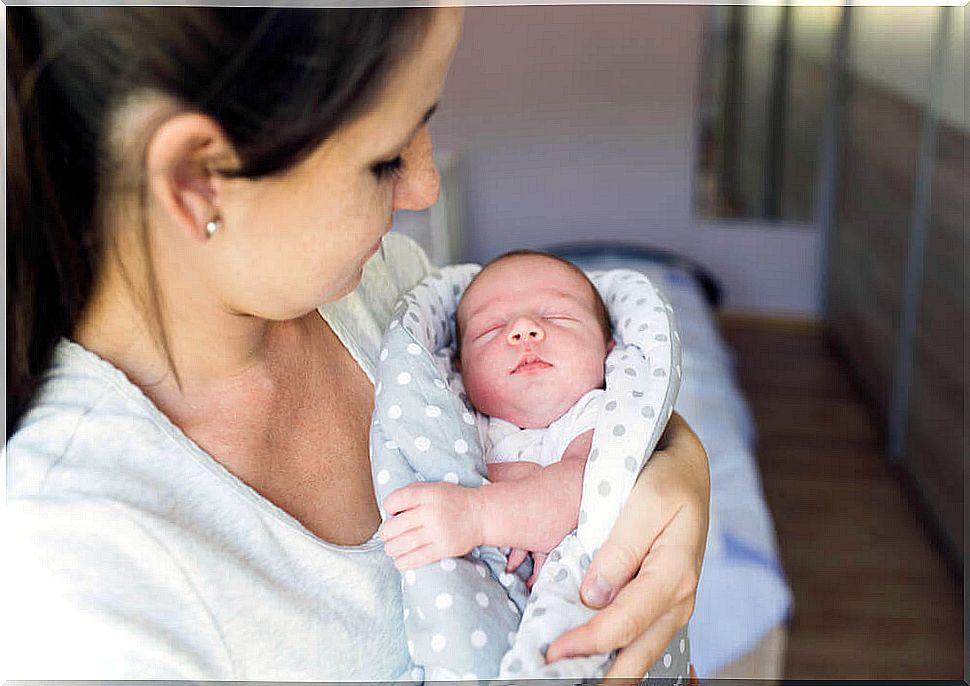
” My baby has always wanted to be on my arms since he breathed his first breath “. You hear that from almost all mothers. Many say it enthusiastically, others rather surprised. But often we don’t follow our instincts to just hug the baby. Instead, we listen to advice from other mothers or specialists who advise against too much physical contact.
A newborn may not yet know who its mother is when it is born. However, certain sensors are instinctively activated by his first breath.
These enable the baby to survive. So it finds its way to the mother’s breast, where life-sustaining food is waiting.
The baby spends nine months in the womb. And even after the birth it is still completely dependent. It depends entirely on the mother to survive.
This bond is the guarantee for its well-being. It begins at birth and lasts until the child has reached maturity. And love is the main force for (survival) life.
Why physical contact is so important to your baby
One of the enthusiastic mothers might be inspired to say such words. And yet we often exercise restraint in body contact and do not hold our baby “with love”.
Rather, we often allow ourselves to be influenced by certain opinions. And they say that you shouldn’t hold the baby in your arms every time it cries.
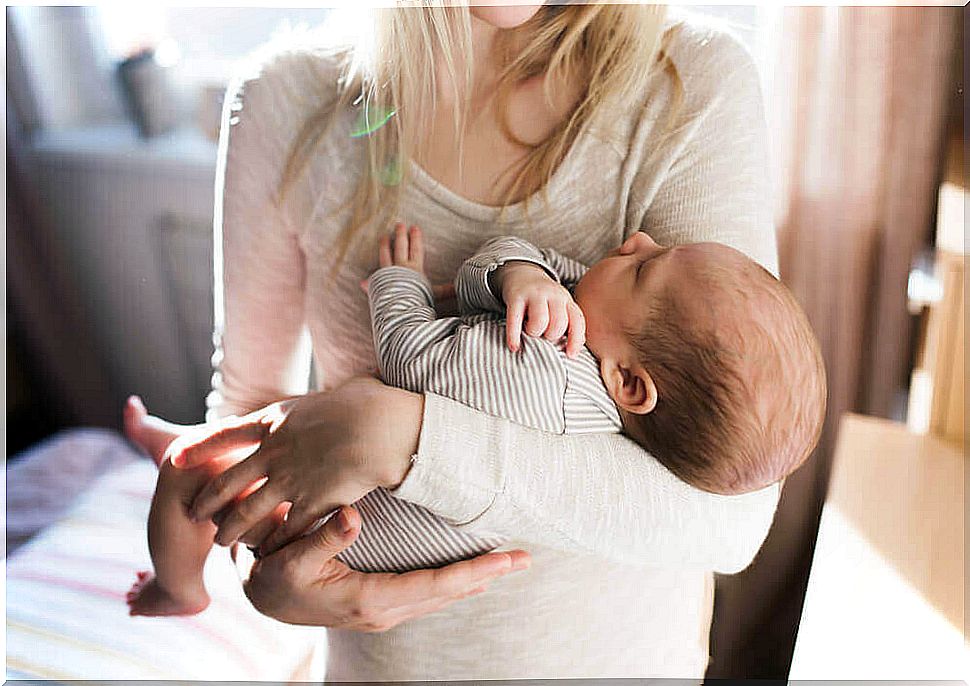
It is often said that if the baby were teased every time they cry, they would learn to manipulate us.
It would also affect his future independence.
As if a newborn could even understand what manipulation or independence is!
Infants are mammals. And as such, they depend on the mother to be there. Only in this way can they survive and grow.
Love is the best way to create an emotional bond with your baby. And also to promote his good development.
Your child always wants to have physical contact. Because this means affection. This is one of the elementary needs of your baby, as well as nutrition and hygiene.
Your baby needs physical contact
After the birth, the baby needs to be close to its mother for at least another nine months. Because it still has to get used to life outside of the womb. And only in this way can its healthy development be guaranteed.
The baby spent the first nine months of its life in very close physical contact with its mother. And the second nine months are also needed as much of it as possible.
The baby recognizes maternal love through closeness and physical contact. Your little one doesn’t just cry because they’re hungry or tired, or because the diaper is dirty.
It always wants to be on your arm because it perceives motherly love through its skin. In addition, it simply follows its instinct.
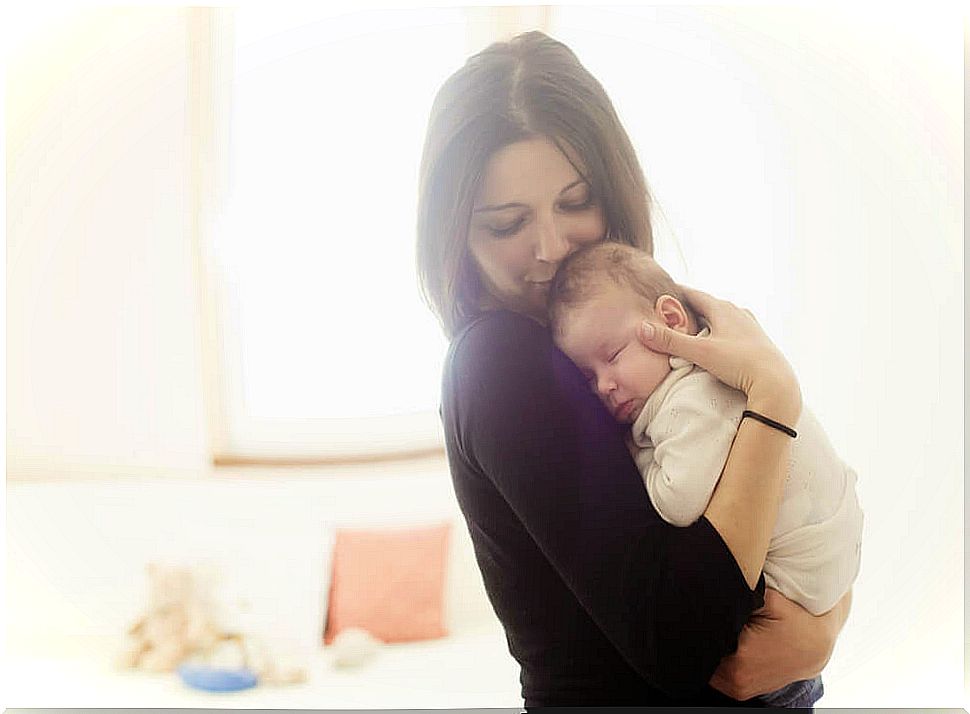
But not only the baby follows his instinct. In our mothers, too, the newborn naturally awakens instincts. For example, looking for physical contact with our little one.
But still we are able to switch off these very own feelings in us. And instead listen to certain opinions. Or to want to confirm certain theories. Or maybe just to get back to work. However, your baby will continue to require physical contact with the mother.
In today’s society, the consensus is often this: the baby should sleep alone in a room. It also needs to be breastfed at certain times of the day. And it mustn’t be fooled every time just because it cries.
But we do all of this and overlook something very important: This little creature has lived in our womb for nine months. There it slept very close to our heart.
It was constantly fed by the umbilical cord. And we were always with him.
The lack of physical contact
In the 1940s, Dr. Rene Spitz, an Austrian psychoanalyst, conducted a study.
In this he came to the conclusion that the mass deaths of babies in orphanages can be traced back to a lack of love.
He compared two groups of babies. On the one hand, those who were isolated in their beds in a hospital. On the other hand, newborn babies who were looked after in prison by their own mothers.
The babies cared for by their mothers grew faster and were healthier despite being in prison.
The isolated babies, on the other hand, showed physical and mental deficits. These newborns had no physical contact with their mothers or their care.
At the end of the study, tragically, 37% of the babies in the orphanages had not survived.
Spitz’s thesis has been sharply criticized and questioned for decades. But then in 2007 the magazine “Science” published an article written in Romania. This wanted to prove the correctness of Spitz ‘theory.

This new study took into account the criticisms of the Austrian study. Nevertheless, she also came to the same conclusion: love is fundamental for the baby’s well-being and development.
Those newborns who grew up in Romanian orphanages and who were not close to their mother had more growth problems and fewer chances of survival than children in foster families.
Love is something very natural
“ Just as my baby always wants to be in my arms, I also want it to be with me all the time. “These are the words of a mother who wants to raise her child with a lot of physical contact. She has her newborn close to her because it is so natural to her.
Of course, it is right that we do not want to raise children who are dependent or who are unable to take their lives into their own hands.
Therefore , it is sometimes difficult for us to wait for each stage of the maturation process to be completed. Because we live in a world that moves very quickly. And whether we like it or not, we ourselves accelerate the growth of our children.
The first months after delivery are especially important for your baby. Because this is the time it prepares for its path to independence.
A path that only really begins at the age of 2. And which only ends after going through various stages of independence in childhood and adolescence, around 15 or 18 years later.
Keeping body contact with your baby is the best way to make your child feel loved. And a loved one is happy.
There are no limits to express love. Or at least there shouldn’t be if we want to live in a better world.


